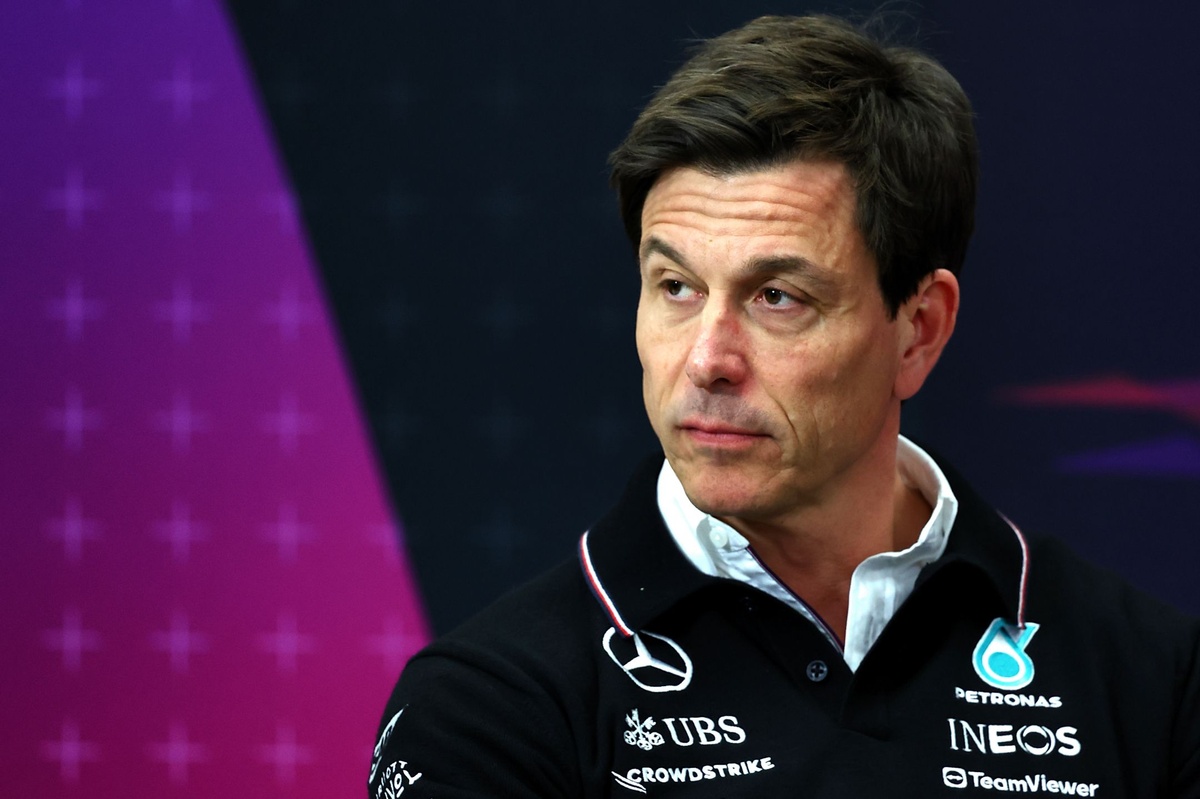Mercedes team boss Toto Wolff has cautioned that his squad isn’t getting ahead of itself despite taking a comfortable win in Formula 1’s Canadian Grand Prix on a hot track surface.
In the hands of Russell the Mercedes W16 looked like a contender for victory in Montreal from the first lap of practice, and the Briton duly defeated Red Bull’s Max Verstappen to pole with what he described as one of the best laps of his life, with McLaren’s championship leader Oscar Piastri further behind in third.
Russell and Mercedes were strong in Canada last year too, when he took pole with an identical time to Verstappen but lost out on a win, so the raw performance didn’t come as a surprise. But the Mercedes has a notorious tyre weakness in the heat, so when track temperatures ramped up on Sunday the Brackley squad still wasn’t sure whether its driver could fend of challenges from behind.
But Russell seemed to control the race with ease, outperforming Red Bull on tyre management and covering off Verstappen’s undercut attempt. Meanwhile, Andrea Kimi Antonelli also delivered his best F1 performance yet, passing Piastri to claim his maiden grand prix podium.
Strong Canada form was expected, but lasting in track conditions approaching 50 degrees was not. One obvious connection seems to be Mercedes’ new rear suspension geometry, which was introduced in Imola, then taken off the car amid correlation doubts and re-used in Montreal to help keep the tyres under control.
But with no such thing as a silver bullet at this advanced stage of the regulations, team principal Wolff preferred to remain cautious over any sort of hot weather breakthroughs.
“We had 50 degrees of track temperature, and we’ve been dominant,” Wolff said. “We’ve had some things changing on the car. We have a new rear suspension. I’m really happy how the team has managed that, but I guess you need to look at the track layout.

George Russell, Mercedes
Photo by: Zak Mauger / Motorsport Images via Getty Images
“Montreal was always good to us. It lacks the typical high-speed corners where we suffer more in the heat. That’s one. And number two is quite a smooth asphalt here, which is less abrasive and therefore less damaging to our car, that suffers from rear tyre degradation and overheating.”
Montreal’s unique stop-start track layout therefore means Mercedes won’t get too confident over the rest of the summer races. Russell won in Austria last year, albeit aided by the controversial clash between Max Verstappen and Lando Norris, but Mercedes was the third-quickest team then.
“Never confident,” Wolff said. “Because the swings in performance are still there. We’ve seen it last year that on some tracks it wasn’t even close to who was second, but we dominated throughout the weekend. And that’s a little bit the pattern we have seen here. And Austria is going to be a different ball game, different track layout, different challenges.
“We expected a bit more tyre overheating considering the track temperature, but we’re under no illusions that this really suited the strengths of our car the same way as it did last year. But for the majority of the circuits, we know it’s a bit of a challenge, and that’s why this is the first weekend both of us are on the podium. But it’s great to see that when we get that chance, we take it.”
It does appear as though the updated rear suspension from Imola does provide a benefit after being taken off the car in Monaco and Spain, and it now looks here to stay.
“We brought the new rear geometry for that particular problem that we had, the rear surface overheating,” Wolff explained.

George Russell, Mercedes
Photo by: Andy Hone / Motorsport Images
“We weren’t quite sure about the results in Imola, because they were worse than we expected. And then taking it off, I think was the right thing to do, and bringing it here because hopefully the development direction is correct.
“But in these kinds of regulations, you never know whether you land development or not. Correlation has been difficult, particularly for us, but for many other teams. There’s never one magic solution that turns the car from a podium car to a dominant winner. But the more datasets we have, the more we learn.”
Additional reporting Ben Hunt
In this article
Filip Cleeren
Formula 1
Mercedes
Be the first to know and subscribe for real-time news email updates on these topics
Subscribe to news alerts






